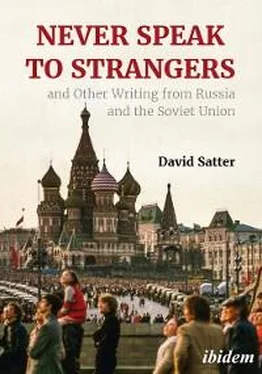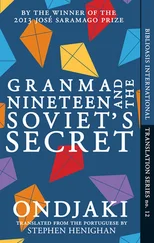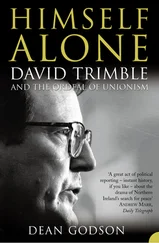“We are very worried,” said the man with the sandy hair, ignoring my reaction, “we want to know what happened to you.”
“I was with the police,” I said, “because my suitcase was stolen in the middle of the night from the train. Why don’t you tell me where it is?”
“Our movement may be in danger because of you,” the sandy haired man continued. “Were our names in the suitcase that was stolen?”
“I don’t know who you are. I also don’t know anything about any names.”
“Did Viktors Kalnins give you our names?” the sandy haired man persisted.
The tall, solemn man seemed demoralized by the hopelessness of the situation. “Viktors called me,” he said, “and we went to the station to meet you but we left when we saw you talking to the police.”
“So,” I said, “you are trying to tell me that someone arranged for you to meet me in Tallinn?” Several of them nodded their heads yes.
“Show me some identification,” I said.
“No, we don’t show any identification,” said the sandy haired man, shaking his head firmly.
“I’m glad to hear that,” I said, “because for a moment it occurred to me that you might actually be the dissidents but if you won’t identify yourselves, it only proves to me that you’re the KGB.”
The superficial politeness that had prevailed up until that point disappeared. The tall, solemn member of the group leaned over the table. “I spent twelve years in the camps,” he said. “My friends have spent six, seven and eight years in the camps. You’re not going to treat us like a bunch of niggers.”
This remark took me completely by surprise. Could it be that I was accusing them unfairly?
“You’re operating on a false assumption,” said the older man whose expression had been the most sympathetic. “The KGB can forge any kind of identification it wants. In a situation like this, you can’t rely on documents.” He hesitated and then added gently, “You have to believe what is in your heart.”
He asked me if I had the names and addresses of the people I was to see. I said that I knew who I was supposed to see. I then removed the paper with the names and addresses from my wallet. “Now, tell me,” I said, “who are you?” The tall, solemn man on my right said, “I am Valdo Reinart.” The man who met me in the hotel lobby said, “I am Endel Ratas.” The intense, sandy haired man said, “I am Mart Niklus” and the older man on the left, smiled and said, “And I am Erik Udam.” Udam was the leader of the Estonian dissidents. Udam then asked if there were addresses written on my note. I said there were and each person gave his correct address.
Reinart got up, a little less obviously distressed, and filled my glass with cognac and then poured drinks for the others around the table, who also began to relax. Udam asked me to tell him about the theft of my suitcase. I hesitated for a moment and then decided to tell them what had happened. If they were dissidents, they were entitled to know and if they were KGB agents, what I said would come as no surprise. I began to describe what had happened and, as I told them how I was distracted, pained expressions came over the faces of the four men. When I finished, Reinart said, “I’ll call Viktors immediately so he can warn everyone that your notes are missing.”
They then began to argue among themselves. Udam suggested that the theft was organized by black market operators but Niklus disagreed. “This was the KGB,” he said. Reinart asked me what we talked about. “Not much,” I said, “just trivialities.”
“They didn’t ask you any questions?”
“Nothing special.”
“That doesn’t sound like the KGB,” Reinart said. “They always try to find out everything they can.”
The conversation shifted to whether or not it was safe for us to meet later. We finally agreed that they would try to assess the situation and Ratas would meet me at 10 pm that night in front of the Tallinna Kaubamaja.
Before we got ready to leave, I told Reinart that I was sorry about what had happened. For the first time, his manner seemed to soften. “What can you do,” he said reflectively, “a young man, a beautiful woman …”
Udam said he had one request before I left. He wanted me to leave the list with the dissidents’ addresses and names with them. “It’s not that we don’t trust you,” he said. “We just can’t afford another mistake.” I took the list out of my wallet and gave it to Udam and he put it in an ashtray and lit it with a match, holding the match to the list until it had been reduced to a wisp of ash.
I returned to my hotel where I met my official guide. We agreed on a program for the next day. I then left the hotel to look for Masha. But I soon discovered that the address she had given me did not exist.
I returned to the Viru, went to my room and then to the lobby where I stopped to buy a postcard. I suddenly had the feeling that someone was watching me. When I turned to look, the only person I noticed was a young man with a mustache and goatee who was holding a square attaché case.
I finally left the hotel and walked to the Old City. There had been a slight break in the weather and there was a fine rain. Some of the accumulated ice on the roofs was beginning to thaw, causing water to drip from the eaves and run down the drainpipes. In the streetlamps’ hazy light, the paint peeling from the facades of the buildings made them appear particularly shabby. I turned down one of the side streets and through the window of a gabled stone building, I could see people queuing, waiting to test loaves in the bread racks. The drumbeat of dripping water was punctuated by the slamming of the heavy wooden door to the bread store as people left with their purchases. A little bit further down the same street, I passed a dimly lit café where, through a gauze curtain, I could see pensioners carrying their tin trays to metal tables and an old crone mopping up the broken tiles on the floor. I entered a quiet alleyway that ran along the city wall. At last, I came to a cul de sac where I was surprised to see an old woman with a few wisps of scraggly gray hair, a lined face and a dazed look in her wide open eyes. She stood motionless in the rain holding a tin can filled with pencils and made no effort to speak, looking past me as if I wasn’t there.
Shortly before ten I returned to the hotel where a group of Finnish tourists were showing the effects of heavy drinking. Finally, I walked to the door and glanced behind me. On the upper mezzanine, I saw the man with the attaché case.
At ten o’clock, I met Ratas at the Tallinna Kaubamaja. “They’re following you!” he said, his face completely contorted. “Be here tomorrow, two o’clock.”
The next morning I went with my guide to an agricultural institute outside Tallinn. The meeting lasted for several hours. I excused myself from the lunch that had been prepared and left the institute at 1 pm.
As we rode back to Tallinn, I tried to imagine how to meet the dissidents without being followed. Suddenly, I recalled a rundown hotel in the Old City called the Hotel Baltika that I had noticed the previous night. As we approached the Old City, I asked the driver to leave me off at this hotel. There was a moment of confusion but the guide agreed that the driver could stop there.
I got out of the car. I then cut back through a small park and started to climb the stone steps to the Upper City. Factories and railroad lines, the yellow cranes of Tallinn harbor and rows of brown and grey Soviet apartment blocks spread out before me. Glancing back, I turned and saw a man in a silver jacket at the bottom of the steps climbing rapidly. I hurried along a narrow path between the stone houses. Looking back again, I saw that my pursuer had reached the top of the steps. I turned into the entryway of a Lutheran church where an official Soviet guide, mistaking me for a tourist, began to describe the torture of heretics that had been performed there.
Читать дальше












